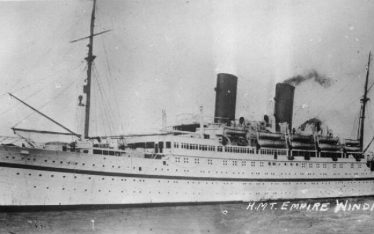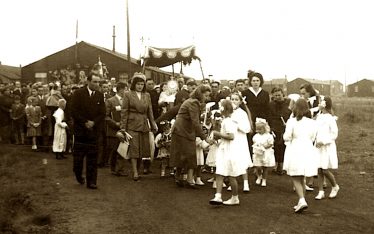The heady scent of flowers on a summer’s evening is potent as a group of zuchy run excitedly down the road: they have earned the right to spend 10 minutes at the nearby Kawiarnia (cafe) as a reward for good behaviour. The kawiarnia’s atmosphere is convivial and full of noisy discourse among the adults playing cards and dominoes. But the children don’t notice them, full of giddiness at being able to buy a drink and sweets at the counter, knowing the rest of kolonia (brownie and cubs camp) are already getting into bed.
Early memories
This is just one of thousands of childhood memories I and many others have about stanica (scout centre) in the grounds of Penrhos Polish Home in North Wales. Many generations living in the U.K. and beyond have spent happy times in Penrhos. My grandparents, Dad and Aunt were stationed there after the war, with my parents and brother we attended all our kolonie there, my parents in the leadership team as was my aunt in the years before.
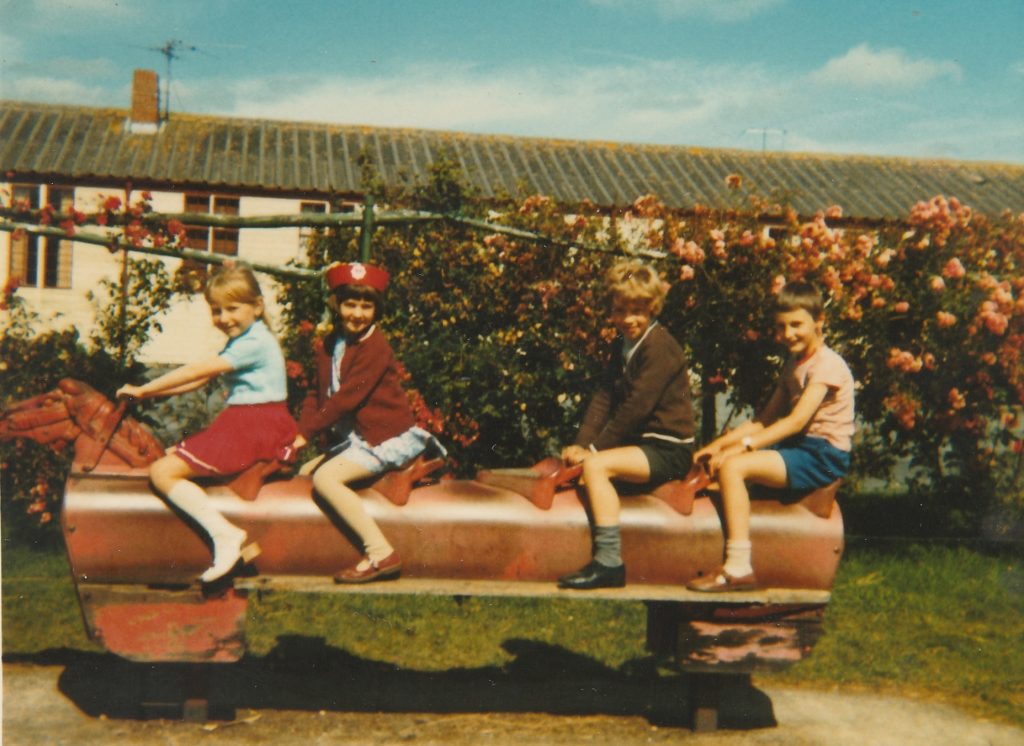
My earliest memories are of sleeping with my parents in a dark gloomy room cluttered with old wardrobes and cabinets: I was five years old. The room was at the end of a corridor equally full of furniture discarded for the time being but never to be thrown out, ‘just in case’. I clung to my mothers skirts all day and cried when she left me at the large dining table in the jadalnia (dining room) to get us food. The noise of maybe 100 children chattering was deafening to my ears, almost frightening but the scent of buttered pasta (makaron z serem) served in huge cavernous cauldrons stayed with me and has become a staple recipe when the cupboard is bare. Only in later years, graduating to a zuch (brownie) did I sleep in the long room with high windows stuffed full of beds many side by side, with the wooden decaying washroom reached by a small step down, below it. I remember sitting there crying on Visitors’ Day in sympathy with a friend whose parents weren’t visiting, comforted by our szóstkowa (sixer), even though my parents weren’t far away.
A magical place
Every evening we would congregate at the foot of the jadalnia (now a sleeping hall), through an almost secret double door that led to extreme happiness. Here we, now older zuszki, would sing our hearts out, waiting for one of the older boys to choose us for a magical dance. This was where we had our first encounters of the dance floor.
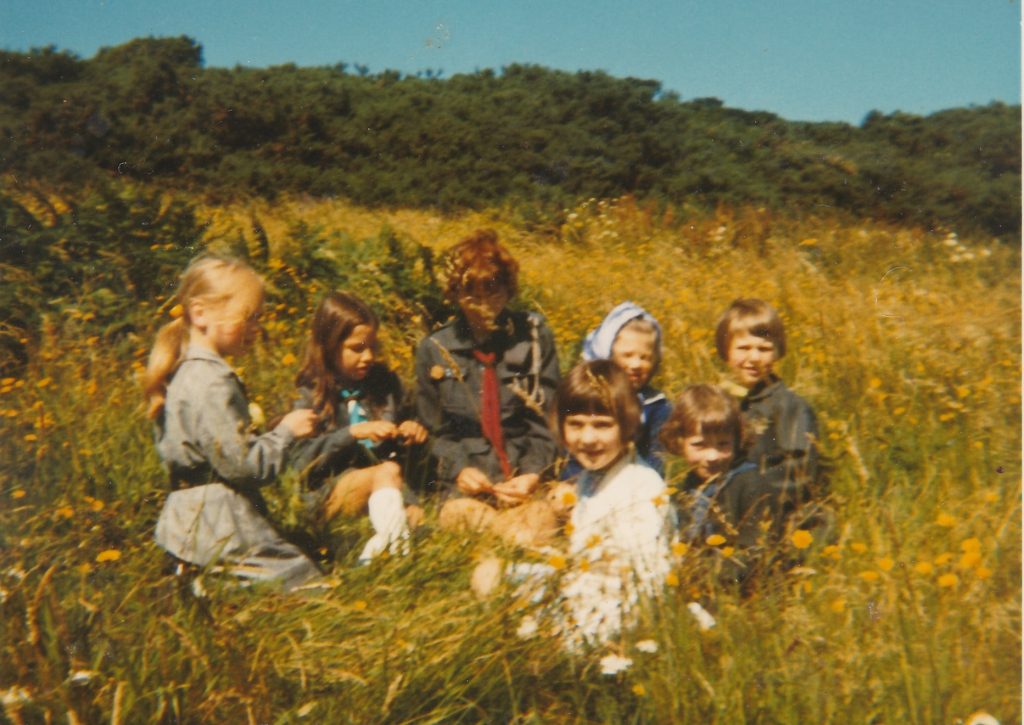
Such life lessons, not only here, but sitting on the haystacks of the surrounding fields (maybe not allowed) or under a tree listening to that day’s story, of indians, krakowiaks or other heroes from the cykl (plan) specially written for all zuchy so we could walk into other worlds. There probably wasn’t much difference between us and zuchy in Poland from before the war or those who had come before us in the 50s and 60s. Boys in particular relished the living history of the osiedle (settlement), scaring us with stories of haunted bunkers, left over guns and recreating wartime adventures in the old bunkers and buildings scattered around.
Evening’s end
The end of each day is marked forever in my mind as a time of peace and stillness. The day stopped for us to concentrate on the words of the hymn “„Wszystkie nasze dzienne sprawy, przyjm litośnie Boże prawy. A gdy będziem zasypiali, niech Cię nawet sen nasz chwali.” “All our daily tasks and matters, take with mercy God of goodness, and as we do fall aslumber, may our dreams also praise you.” (Pieśn Wieczorna – Franciszek Karpiński 1792)
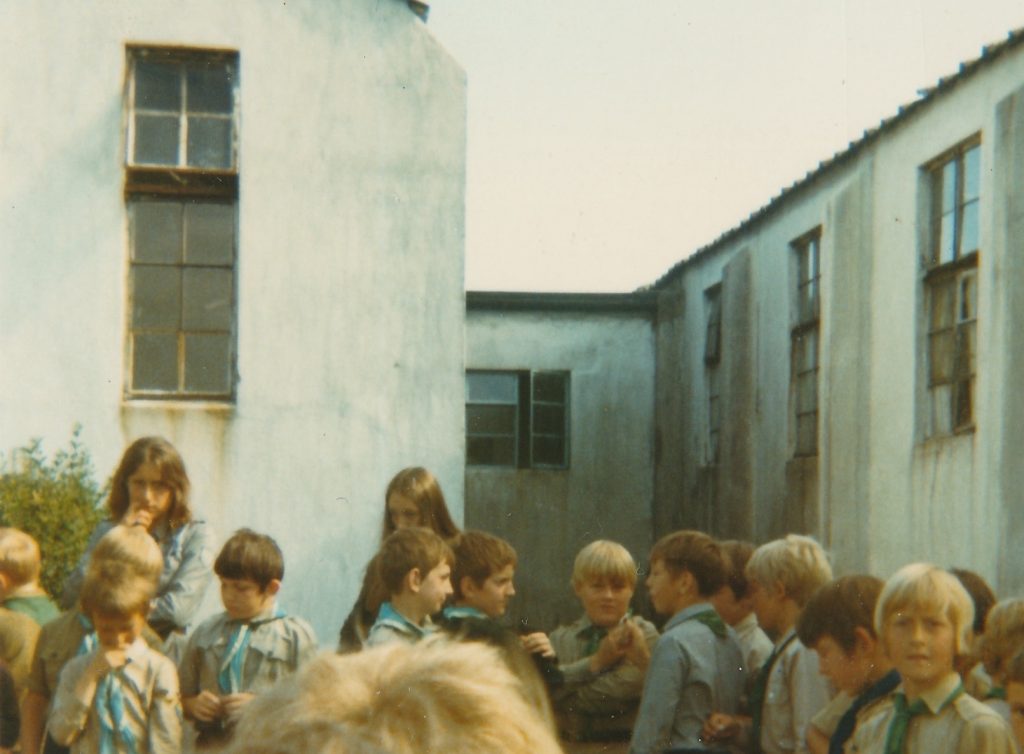
This was always followed by „Słoneczko Już gasi złoty blask” and whilst this is still sung at kolonie elsewhere, it is with this square of grass outside the stanica buildings with the small image of the Virgin Mary, similar to roadside shrines in Poland, that I link the song. “And now the sun sets with golden glow, in the next moment, skies will glisten with stars. Goodnight for now.”
Why is it shutting?
It is heartbreaking that this icon will never again hear the children’s prayers and songs, imbued with the memories of so many who have sung in this place. Tragic also for Hufiec Gdynia (Lancashire and Cheshire region of Scouts) who have looked after and maintained it as their own for many decades.
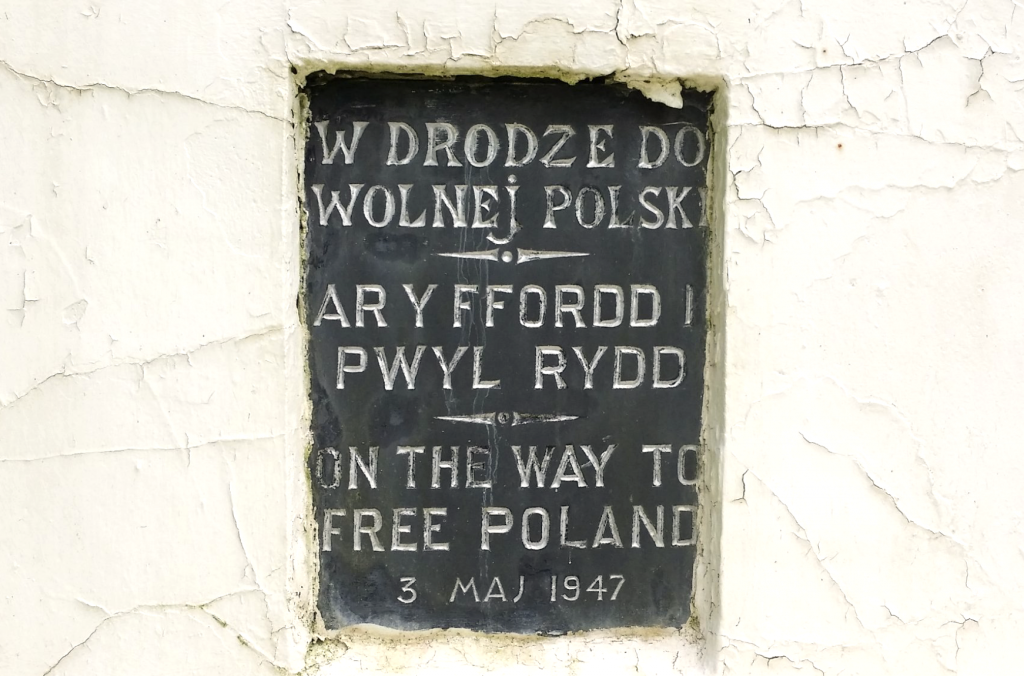
It is over 70 years since the first Poles came to Penrhos and many of them will never have imagined the scout house and home still being there. In the last years, less and less Poles have moved to the care home and with the increasing demands of the Care Quality Commission the trustees of the Polish Housing Society have sadly decided to shut the szpitalik (care home) in 2021 and hand the sheltered housing to a Welsh company. Unfortunately as the Stanica has always been rented from the Society, the agreement has come to an end with the planned changes. Whilst the Scouts have worked wonders to keep the old buildings intact, it was always inevitable that a time would come when they no longer served their purpose.
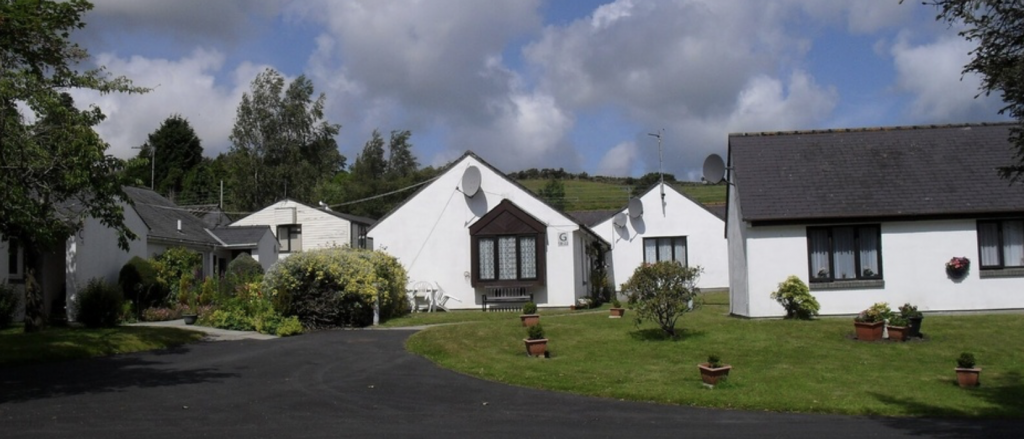
I wish that as children we’d been more aware of the residents around us in the Polish home. We knew they were something to do with the war, but never asked. In turn, they were happy to see us play freely and without fear, unlike them, not wanting to disturb us with their stories. Within our families this is a story we know so well.
Final farewell
There should have had a final farewell event for the stanica at the end of March 2020 but the coronavirus crisis has meant it is postponed for now. It’s a heavy burden for those making the decisions and I do not envy the deliberations of the trustees of the Polish Housing Society to ensure that Poles currently living there and in the future have a secure and safe place to call home. We should take heart that Ilford Park in Devon which I wrote about recently, run by the Ministry of Defence continues to be Polish in nature and we hope Penrhos will also be, for as long as Poles wish to live there. There are so many places around the world where Poles have left their memories, be it India, Africa, boarding schools and homes. Penrhos stanica is becoming another of these places, particularly for those who knew it best, the scouts from the Manchester area. For all of us, it will forever be an idyllic place of wonderful childhood memories, a place of great happiness and joy.
If you enjoyed this article you might want to read about Ilford Park:
A glimpse into the UK’s ‘old’ Polish community
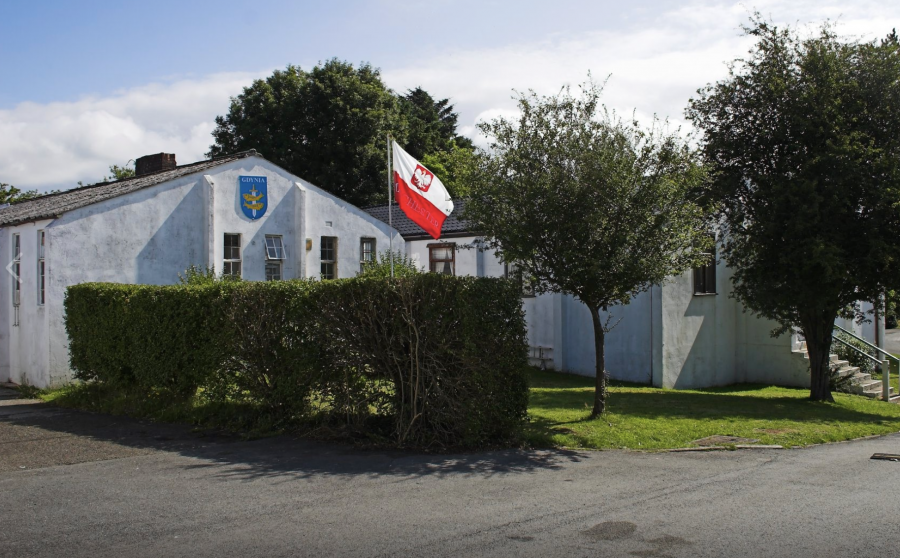

 1.Tracing Family History pre-WW2
1.Tracing Family History pre-WW2 2. Tracing Family History WW2
2. Tracing Family History WW2
